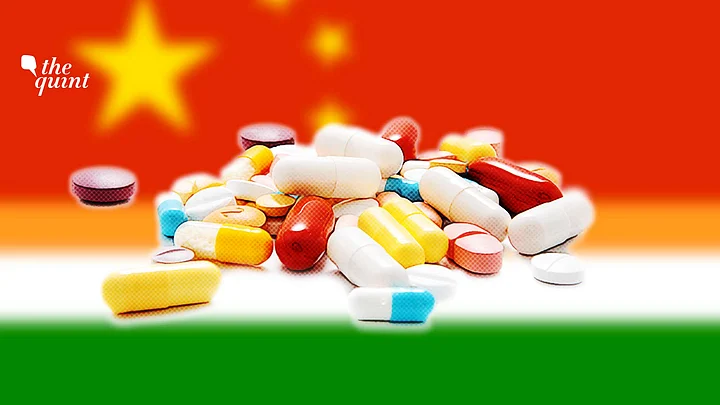In the midst of the raging COVID pandemic – at a time when the Modi government is encouraging the country to go 'atmanirbhar' (self-reliant) – China has decided to increase the price of Key Starting Materials (KSMs) that India imports and uses for manufacturing life-saving antibiotics, steroids and other medicines.
The hike is to the tune of 10-20 percent. China, however, has left the price of Active Pharmaceutical Ingredients (APIs) “largely unchanged,” reports ET Now.
Dr Dinesh Dua, chairman, Pharmexcil, however, told The Quint that even the API prices are higher than what they were during pre-COVID times.
He says that after the set-in of the pandemic “there was a complete breakdown of logistics, and prices went through the roof.”
How Does the Hike Impact India’s Bid for Self-Reliance?
KSMs are the starting point in drug manufacturing. They go into the manufacture of intermediaries, which are further used in making APIs. Subsequently, APIs are used in the manufacture of final medicine (product).
India has recently been trying to manufacture its own APIs at a greater extent, in an attempt to increase self-reliance. On 15 September, the government informed the Parliament that they had readied two schemes for promoting domestic manufacture of drugs.
An increase in the price of KSMs will automatically create a hurdle in India’s API manufacturing attempts, experts suggest.
According to Dr Dua, this will create pressure on API manufacturers.
Further, Price Waterhouse Cooper executive Sujay Shetty was quoted by ET Now as saying that investments from firms are also “crucial” for the implementation of Modi government’s schemes aimed at arming Indian pharma industry with greater manufacturing capacity.
How Could it Impact the Supply of Essential Medicines?
Essential medicines, in India, include important antibiotics, cardiovascular drugs, as well as vitamins and minerals.
Owing to the price-control mechanisms in place in the country, which allow people hailing from lower income groups to be able to afford these essential medicines, suppliers are not allowed to increase their selling price.
According to Dr Dua, if imported KSMs become more expensive, the cost of manufacturing the APIs for these medicines will rise too. Unable to sell these medicines at a higher price, companies will manufacture them in less quantities to diminish their losses.
Thus, the supply of these essential medicines may be expected to decrease.
What About Atmanirbharta Plans?
Dr Dua is of the opinion that India will still be self-reliant in the next 5-6 years.
While presently, India might be looking at a bleak decrease in supply of certain essential drugs, J Jayaseelan, chairman of Indian Drug Manufacturers’ Association’s (IDMA), Tamil Nadu, Kerala and Puducherry board feels that the dependency on China for drug manufacturing will remain until India becomes self-reliant.
He reckons it will it take India five years to actually attain that level of self-reliance.
“Government is introducing bulk drug park and product based incentive. It will take another five years for us to be self-reliant.”Dr Jayaseelan
Further, Dr Jayaseelan said that China increasing the price of KSMs is a “routine phenomenon.”
“Later, they will reduce it as well,” said Dr Jayaseelan, adding, “nothing fearsome will happen.”
(At The Quint, we question everything. Play an active role in shaping our journalism by becoming a member today.)
